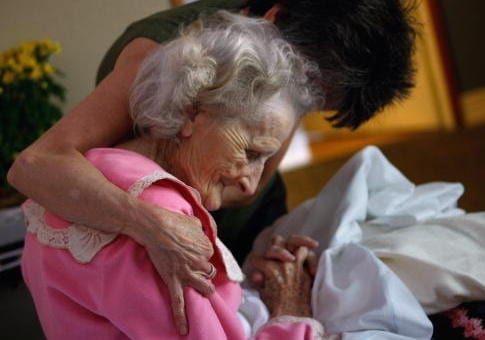
![]()
BY:Â
At least 21,000 Americans have died waiting to enroll in Medicaid, thanks in part to the expansion of the government healthcare program under Obamacare, according to a recently released report from the Foundation for Government Accountability (FGA).
Medicaid waiting lists currently sit around 650,000 individuals, FGA estimates. By contrast, more than 28 million able-bodied adults are now enrolled in the program, using resources that might otherwise be allocated to individuals on the waiting list.
The report focuses primarily on the waiting lists generated by the Home and Community-Based Services (HCBS) waiver program. That program, created in 1981, allows states to extend Medicaid services to individuals in their home and/or community, meaning they do not need to be cared for in a nursing home or similar institutions. HCBS recipients tend to be those with severe intellectual disabilities, traumatic brain injuries, spinal cord injuries, and mental illnesses.
HCBS programs are operated by all but three states. Because the programs are optional, however, states are allowed to set up caps on enrollment, with waiting lists for those whose applications exceed the cap. Those waiting lists cover 38 states, with as many as 73,000 people waiting for Medicare service in Louisiana alone.
Using state-by-state data, the FGA documented at least 21,904 waiting list members who have died waiting for Medicaid service since Obamacare expansion began. Many states did not track waiting list deaths, or gave only partial responses, implying that the true number may be much higher.
Individuals on the waiting list can spend years, sometimes up to a decade, waiting for access to much-needed Medicaid money. The average wait time in New Mexico, for example has reached 10.2 years, according to FGA data.
In general, Medicaid has expanded from its original purpose. The report notes that able-bodied adult enrollment has quadrupled over the last two decades, from seven million to over 28 million. Able-bodied adults now exceed disabled recipients by 17.5 million.
The report argues that Obamacare expansion has contributed substantially to this issue. As Medicaid has expanded to cover able-bodied adults with a household income of at most 133% of the federal poverty level, resources that could otherwise be allocated to the most needy on a waiting list must be used for otherwise able-bodied adults.
Of the 650,000 currently on waiting lists, 250,000 are currently residents of states that opted to expand Medicaid under ObamaCare. That includes states such as Ohio, where 62,118 are waiting for Medicaid.
“In a nutshell, Medicaid has lost its focus. When you think about the Medicaid program, you think about the blind, the disabled—individuals who truly need Medicaid in order to survive in many cases,” study author and FGA research director Nicholas Horton said. “You’re just talking about a program that I think has gotten really out of whack, and lost its priorities.”
The FGA proposed three solutions to making sure that Medicaid was truly prioritizing the most needy. First, it called for an end to the Medicaid expansion, a move that some states are already considering or beginning to implement. Second, it recommended imposing work requirements for able-bodied enrollees, to help them off the dole and into the workforce. Lastly, FGA called for states to “attack welfare fraud,” helping to reserve billions of dollars to those most in need.
“Expansion states, non-expansion states, really every state out there, needs to stop and take a look at their Medicaid program, and make sure they’re doing everything that they can to protect limited resources for people that are truly vulnerable and truly need help,” Horton said.




